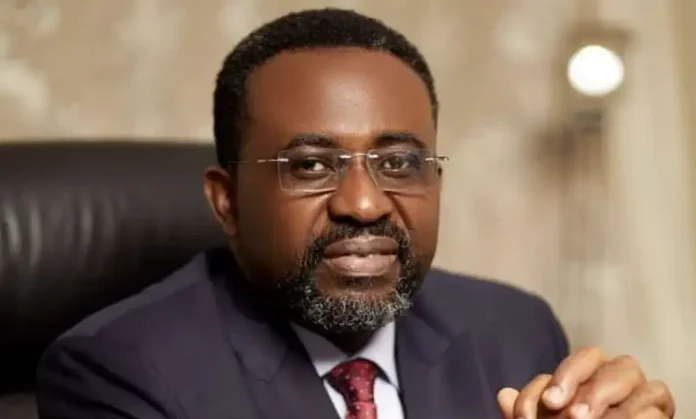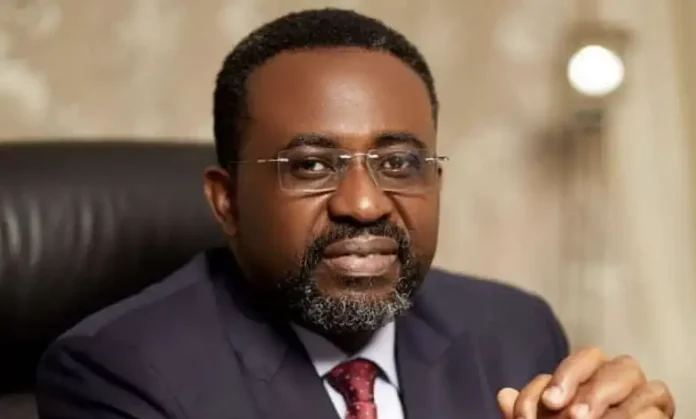
Ghana has turned a decisive corner after years of economic turbulence, but the recovery journey remains unfinished, Bank of Ghana (BoG) Governor Dr. Johnson Asiama told an audience at the Accra International Conference Centre during the launch of the Cedi’s 60th anniversary celebration.
Speaking candidly about the nation’s economic trajectory, Dr. Asiama acknowledged the country had endured one of the most difficult economic periods in recent memory but was now showing strong signs of renewal. “We are not yet where we want to be, but we are no longer where we were,” he said, describing the past few years as a test of Ghana’s resilience and reform resolve.
The Governor pointed to significant progress in stabilizing the economy, citing headline inflation now at 9.4 percent as of September 2025, down from 11.5 percent in August. That’s the lowest inflation rate Ghana has seen since August 2021, marking the ninth consecutive month of decline. It’s the kind of number that suggests something fundamental has shifted in the economy rather than just temporary relief.
The cedi has appreciated by 37.4 percent year to date as of October 17, 2025, making it the best-performing currency in sub-Saharan Africa during the first eight months of the year, according to the World Bank. That’s a remarkable turnaround for a currency that just three years ago was ranked by Bloomberg as the world’s worst performer.
Ghana’s gross international reserves currently stand at around US$12 billion, providing what Dr. Asiama described as a robust cushion against external volatility. He credited this recovery to difficult but coordinated policy decisions taken under the Mahama administration and renewed investor confidence.
The contrast with where Ghana stood in late 2022 couldn’t be starker. Back then, the cedi had depreciated by over 50 percent, inflation spiraled to 54.1 percent, and food inflation soared to an alarming 59.7 percent year on year. Those weren’t just statistics, they meant rising transport fares, shrinking working capital, unaffordable school meals, and sleepless nights for small business owners and salary earners alike.
Dr. Asiama emphasized that the 60th anniversary celebration was not just a commemoration of the national currency but a moment to reflect on Ghana’s economic journey and self-reliance. “The story of the cedi cannot be separated from the story of our economy,” he said, adding that it reflects bold ambitions, trials under pressure, and determination to rebuild.
What’s driving this recovery? Multiple factors appear to be converging. Ghana successfully completed comprehensive debt restructuring involving local currency bondholders, official bilateral creditors, and commercial lenders. The country reached agreements with over 90 percent of holders of its $13 billion Eurobond portfolio, marking a significant milestone in restoring debt sustainability.
Ghana’s export earnings have been buoyed by record-high gold prices, which surged from $2,000 per ounce in 2024 to $3,400 in May 2025. The country, now the sixth-largest gold producer globally, saw gold export revenue rise from $7.6 billion in 2023 to $11.6 billion in 2024. A Gold Board policy requiring domestic gold purchases to be settled in cedis prior to export also played a vital role, boosting Ghana’s gold reserves from 9 tonnes in late 2023 to 31 tonnes currently.
The International Monetary Fund’s (IMF) $3 billion bailout as part of a three-year programme has provided essential financial and technical support, focusing on restoring macroeconomic stability through demand-management reforms. Fiscal consolidation measures, such as suspending GH₵65 billion in arrears payments and slashing Treasury bill yields from 28 percent to 15 percent, have helped ease debt concerns and re-energized investor confidence.
However, there’s reason for caution even amid the positive developments. Sharp regional differences persist in inflation rates, with the North East region recording the highest rate at 20.1 percent while the Bono East region had the lowest at 1.2 percent. Those gaps suggest the recovery isn’t being felt uniformly across the country.
The Bank of Ghana has maintained a tight monetary policy stance to support the currency, including a surprise 100-basis point rate hike in March that raised the policy rate to 28 percent. These moves have been aimed at curbing inflation and attracting foreign investment, but they also mean credit remains expensive for businesses and households.
Recent weeks have seen slight depreciation pressure on the cedi as businesses increase imports ahead of the festive season and election-related spending expectations rise. In response, the Bank of Ghana announced plans to inject about $1.15 billion into the foreign exchange market to ease demand pressures and keep the cedi stable.
Dr. Asiama has previously warned against complacency, stating that stability doesn’t mean fixation and highlighting the need to balance currency strength with export competitiveness. Economists have noted that while the recovery is impressive, the BoG may delay monetary easing due to rising utility prices and lingering inflationary risks. With inflation still above the central bank’s target band of 8 percent plus or minus 2 percentage points, premature rate cuts could threaten recent gains.
The Cedi@60 initiative, which Dr. Asiama launched, will be a year-long national engagement featuring exhibitions, community forums, lectures, and digital outreach. The Bank of Ghana hopes to bring the story of the currency to every Ghanaian home, from urban centers to remote towns, from classrooms to boardrooms.
For many Ghanaians, the cedi is something they interact with daily but perhaps don’t reflect on deeply. Yet behind every note and coin lies a history of bold decisions, economic shocks, policy reforms, and the aspirations of a sovereign people. Dr. Asiama positioned the anniversary as an opportunity to reconnect citizens, young and old, with the role of the cedi in shaping Ghana’s economic identity.
The broader question facing Ghana now is whether these gains can be sustained. The country faces significant challenges including high public debt levels, persistent structural fiscal deficits, and an economy still heavily dependent on commodity exports. While gold prices have been favorable, commodity markets can be volatile, and Ghana needs to diversify its economic base to reduce vulnerability to external shocks.
Political stability will also play a crucial role in maintaining investor confidence. President Mahama’s administration has been credited with introducing sweeping reforms, but sustaining reform momentum through election cycles and beyond remains challenging in any democracy.
What’s clear from Dr. Asiama’s remarks is that Ghana’s central bank sees this moment as pivotal. The country has moved from crisis to stability, but translating stability into sustained, inclusive growth requires continued discipline, smart policy choices, and perhaps most importantly, protecting the hard-won gains against complacency or political expediency.
Ghana’s economic story over the past three years is one of remarkable resilience. From being labeled the world’s worst-performing currency to becoming sub-Saharan Africa’s best, the cedi’s journey mirrors the nation’s determination to rebuild. But as Dr. Asiama acknowledged, this is not the end of the story. Ghana isn’t yet where it wants to be, even if it’s no longer where it was. The next chapter depends on whether the country can maintain its reform trajectory and build on the foundation of stability it has painstakingly constructed.
